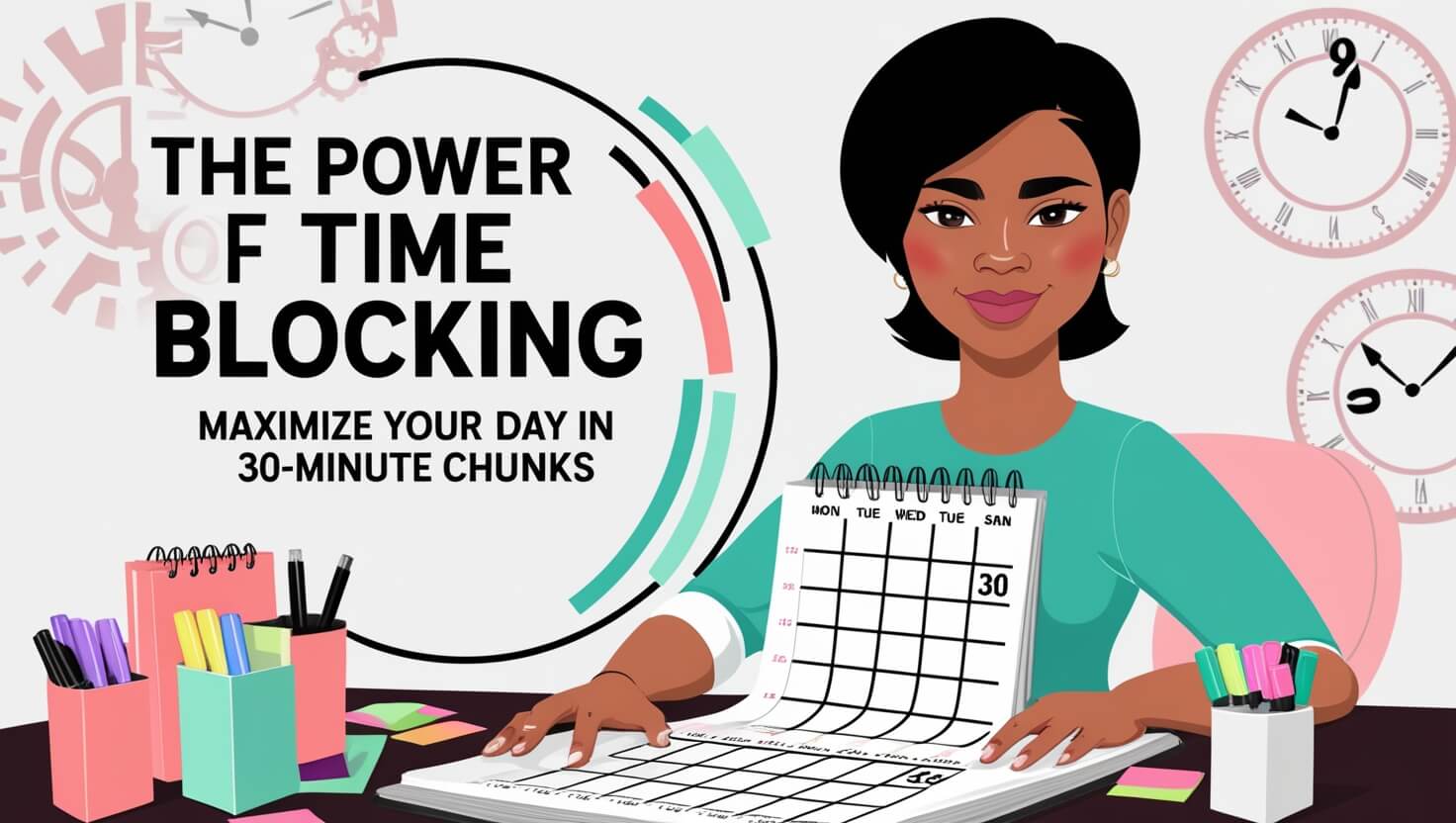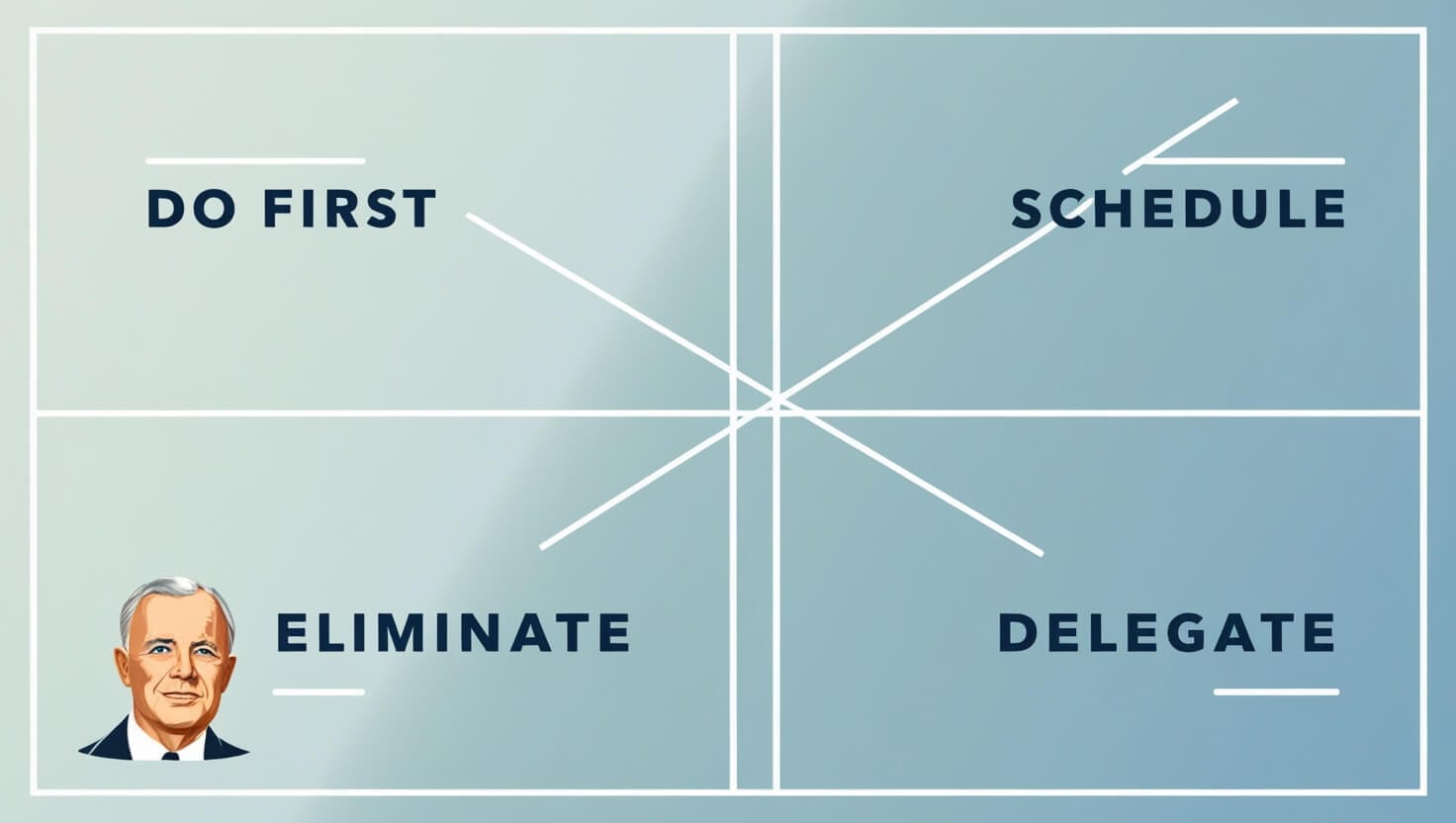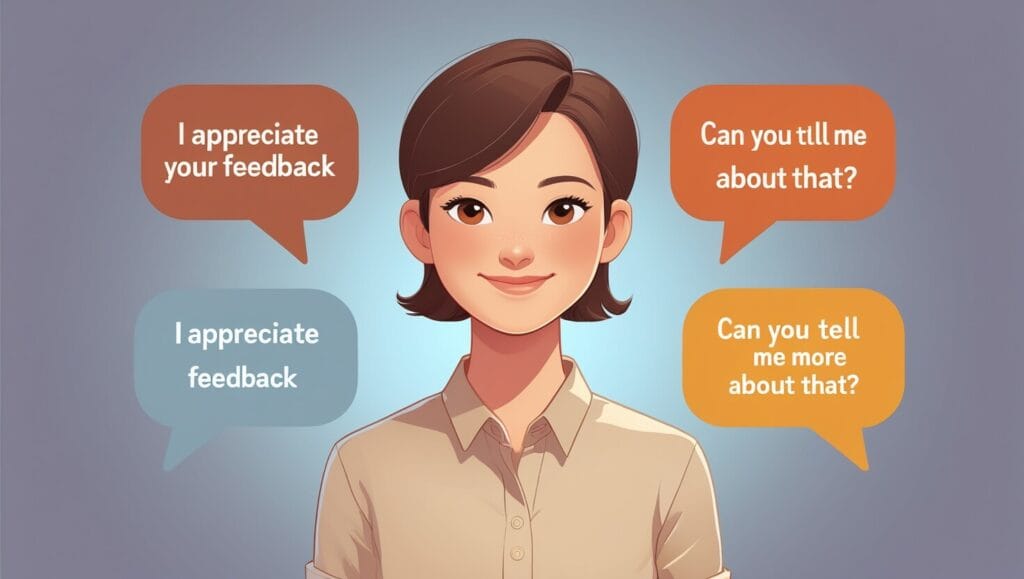
Have you ever walked away from a conversation feeling completely misunderstood? Or perhaps you’ve struggled to express your thoughts clearly, only to have them misconstrued? I’ve been there more times than I can count. Communication is something we do every single day, yet so few of us have ever been formally taught how to do it effectively. In my 15 years as a communication coach, I’ve seen how even the smallest changes in our language can dramatically improve your communication skills and transform relationships.
The truth is, effective communication isn’t about grand gestures or complicated techniques. Sometimes, the most powerful tools are the simplest ones. Today, I’m sharing ten phrases that have the power to instantly improve your communication skills in any interaction. These aren’t just random expressions—they’re strategic language patterns that open doors, build trust, and help you connect more authentically with others.
What makes these phrases so effective? They target the fundamental elements that make communication successful: active listening, empathy, clarity, and mutual respect. By incorporating these simple expressions into your daily conversations, you’ll notice immediate differences in how people respond to you and how your messages are received. Let’s dive in and discover how these ten simple phrases can revolutionize the way you connect with others!
1. The Power of “I” Statements
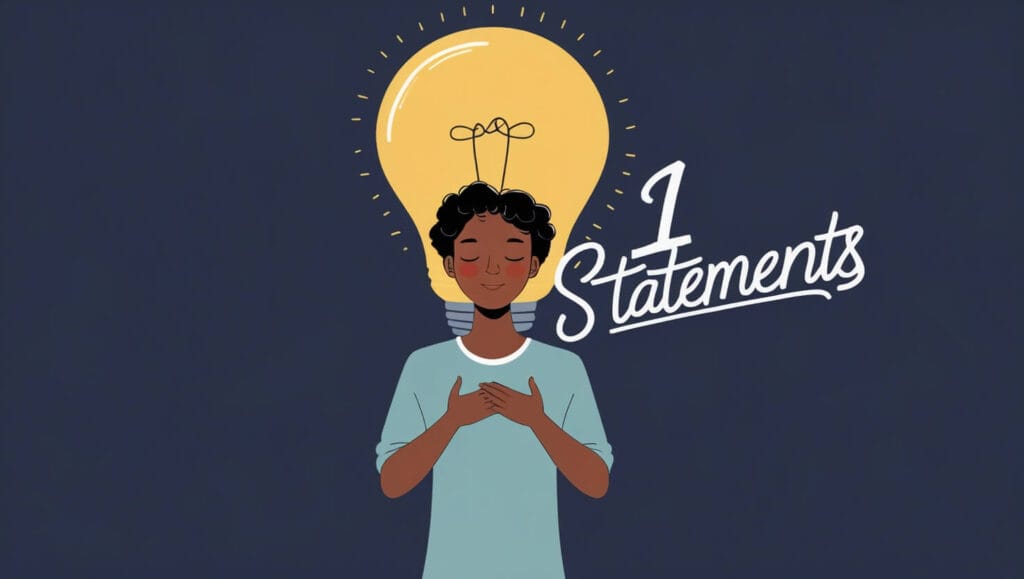
One of the most effective ways to improve your communication skills is learning to use “I” statements instead of “you” accusations. This simple shift in language can completely transform the tone of a difficult conversation. When I first learned this technique, I was skeptical that something so basic could make a real difference. Then I tried it during a heated argument with my partner, and the difference was night and day.
The phrase “I feel frustrated when our plans change last minute because it impacts my schedule” lands very differently than “You always cancel plans and don’t care about my time.” The first expression takes ownership of your feelings without placing blame, which prevents the other person from immediately becoming defensive. This is crucial because once defensiveness enters a conversation, productive communication often flies out the window. By focusing on how situations affect you rather than accusing others, you create space for genuine understanding.
Using “I” statements consistently helps improve your communication skills by establishing patterns of honesty without aggression. It takes practice to reformulate your thoughts this way, especially when emotions are running high. I still catch myself sometimes wanting to launch into “you always” or “you never” accusations when I’m upset. But the moment I pause and reshape my words into an “I” statement, I can almost feel the conversation shift toward resolution rather than escalation. This approach isn’t about avoiding difficult topics—it’s about addressing them in a way that actually leads to positive outcomes rather than deeper conflict.
2.The Art of Clarifying Questions
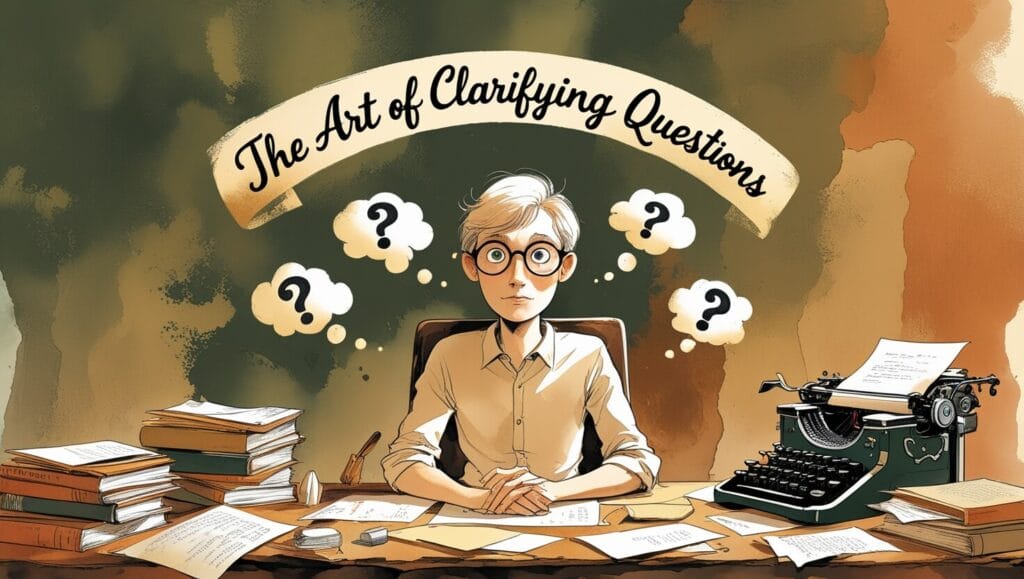
“Could you help me understand what you mean by that?” This simple phrase has saved me from countless misunderstandings and has become my secret weapon to improve your communication skills in both professional and personal settings. Too often, we assume we know what others are trying to say, filling in gaps with our own interpretations. This is a recipe for communication disaster, and I’ve learned this lesson the hard way.
I remember misinterpreting a colleague’s email as criticism when they were actually offering help. Instead of reacting to my assumption, I asked this clarifying question in our next meeting. Not only did this prevent an unnecessary conflict, but it also deepened our working relationship because my colleague appreciated the opportunity to explain their perspective fully. Clarifying questions demonstrate that you’re actively engaged in understanding the speaker’s intended message rather than just preparing your response.
Another powerful clarifying phrase is “What I’m hearing is… Is that correct?” This reflection technique serves two purposes: it gives you a chance to process what’s been said, and it allows the speaker to confirm or clarify their message. When you consistently use these types of questions, you create a communication environment where people feel genuinely heard rather than just listened to. This distinction might seem subtle, but it makes a profound difference in how connected people feel to you. The ability to clarify effectively is fundamental if you want to improve your communication skills, especially in complex or emotionally charged conversations where the potential for misunderstanding is highest.
3.Acknowledging Emotions with Empathy

“That sounds really challenging. I appreciate you sharing that with me.” These words might seem simple, but they carry tremendous power to improve your communication skills through emotional intelligence. Acknowledging someone’s feelings without immediately trying to fix their problem or redirect the conversation shows that you value their emotional experience. This validation creates psychological safety—the foundation of meaningful communication.
I used to be terrible at this. When friends or family members would express difficult emotions, I’d immediately jump to solutions or try to point out the silver lining. While my intentions were good, this approach often left people feeling dismissed rather than supported. Learning to sit with someone’s emotions and simply acknowledge them was one of the hardest but most important shifts I made to improve your communication skills. The first time I responded to my daughter’s frustration with school by saying, “That sounds really frustrating. Tell me more about what happened,” instead of launching into advice, the look of relief on her face was unforgettable.
This approach requires patience and restraint—qualities that don’t always come naturally in conversation. Our instinct is often to fill silence or to quickly move past uncomfortable emotions. But when you make space for feelings through simple acknowledgment phrases, you deepen trust and create conditions for more authentic exchange. People remember how you made them feel long after they forget your advice or solutions. By incorporating empathetic acknowledgment into your regular communication patterns, you signal that you’re a safe person with whom others can share their genuine thoughts and feelings—perhaps the ultimate way to improve your communication skills.
4.The Power of Genuine Apologies

“I was wrong, and I’m sorry.” These six words might be among the most difficult to say, but they carry immense power to repair relationships and improve your communication skills. In my experience, most people struggle with apologies because they equate admitting fault with weakness. This couldn’t be further from the truth. A sincere apology demonstrates emotional maturity and respect for the relationship—qualities that strengthen rather than diminish your standing with others.
I learned this lesson painfully during a disagreement with a close friend. I was so convinced I was right that I refused to acknowledge how my actions had hurt her. The tension between us grew until our friendship nearly ended. When I finally set aside my pride and offered a genuine apology—not the kind peppered with justifications or “but you also” statements—it was like releasing a pressure valve. The relief was palpable, and the experience taught me that effective communication isn’t about winning arguments but preserving connections.
The key to an effective apology lies in its sincerity and completeness. Phrases like “I apologize if you felt hurt” place the burden on the other person’s sensitivity rather than taking responsibility for your actions. To truly improve your communication skills through apology, try formulations like “I was wrong to speak to you that way. I’m sorry for hurting you, and I’ll work to ensure it doesn’t happen again.” Notice how this acknowledges the specific action, expresses genuine regret, and commits to change. This complete approach demonstrates emotional intelligence and reinforces your commitment to the relationship, which ultimately strengthens trust—the foundation of all effective communication.
5.Creating Space with Thoughtful Pauses
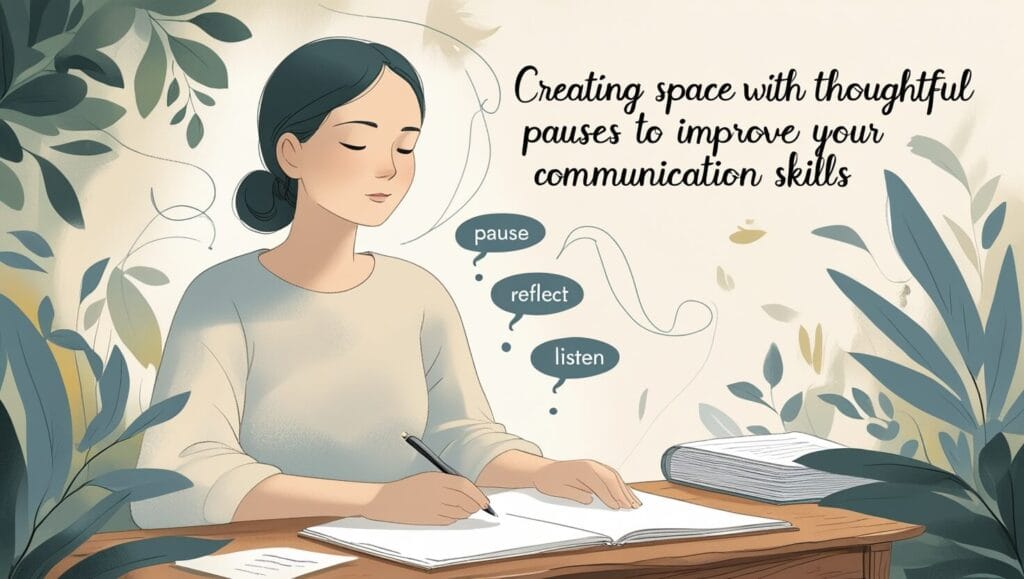
“Let me think about that for a moment.” This phrase might seem insignificant, but it’s transformed how I communicate in high-pressure situations. We live in a culture that values quick responses, but meaningful communication often requires thoughtful consideration. By explicitly asking for a pause, you give yourself permission to process information more deeply, which can dramatically improve your communication skills in complex conversations.
I first recognized the value of this technique during a contentious work meeting where tensions were running high. When asked a provocative question, rather than responding defensively with my first reaction, I said, “That’s an important question. Let me think about that for a moment.” The brief silence that followed changed the entire dynamic of the discussion. Not only did it give me time to formulate a more considered response, but it also shifted the conversational energy from reactive to reflective. The quality of my answer was substantially better than if I had responded immediately.
This approach works equally well in personal relationships. When my partner raises a sensitive issue, taking a conscious pause prevents me from responding based on initial emotional reactions, which are often defensive or dismissive. The pause creates space for empathy and understanding to emerge. It’s worth noting that using this technique effectively requires comfort with silence—something many of us find challenging. Start by practicing brief thinking pauses and gradually extend them as your confidence grows. You’ll likely notice that others appreciate your thoughtfulness rather than viewing the pause as awkward or uncomfortable. This simple practice might do more to improve your communication skills than many more complex techniques.
6.The Courage to Be Vulnerable

“I’m not sure I understand this completely, but I’d like to learn more.” This phrase embodies vulnerable communication—an approach that has revolutionized how I connect with others. There’s an unfortunate misconception that admitting uncertainty or knowledge gaps diminishes your credibility. In reality, the opposite is often true. Acknowledging your limitations demonstrates intellectual honesty and creates opportunities for genuine learning and connection.
I resisted this approach for years, especially in professional settings. I believed that projecting unwavering confidence was necessary for success. This led to many situations where I nodded along pretending to understand concepts that were unclear to me, only to face complications later when my knowledge gaps became evident. When I finally started admitting when I didn’t fully grasp something, two surprising things happened: people respected me more for my honesty, and I actually learned the information I was missing instead of pretending I already knew it.
This vulnerable approach works because it transforms communication from a performance into an authentic exchange. It signals that you value accuracy and learning over appearing perfect, which invites others to engage with you more genuinely. Phrases like “I’m still learning about this” or “I hadn’t considered that perspective before” create conversational openings that can lead to deeper understanding. While it may feel uncomfortable at first to display this kind of vulnerability, it’s one of the most powerful ways to improve your communication skills across all types of relationships. True connection happens not when we present polished facades, but when we allow others to see our authentic selves—curiosity, uncertainty, and all.
7.Setting Boundaries with Respect
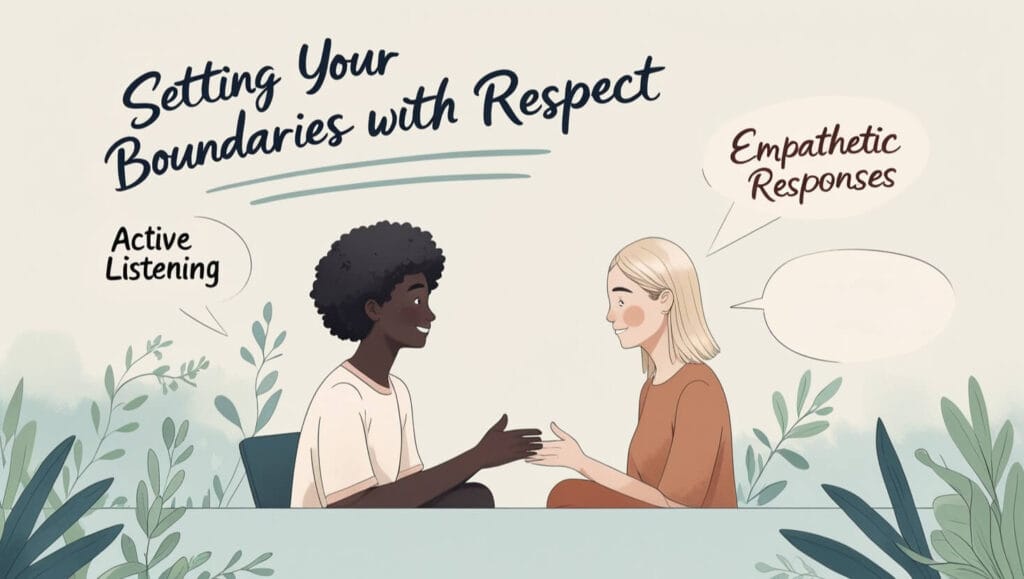
“I appreciate your perspective, but I see things differently.” Learning to disagree respectfully has been one of the most valuable tools to improve your communication skills in my personal toolkit. In a world where disagreements often escalate into arguments or avoidance, the ability to hold your ground while honoring another’s viewpoint is increasingly rare and valuable. This balanced approach allows you to maintain your boundaries without diminishing relationship quality.
I used to struggle enormously with this balance. Either I would aggressively defend my position, creating unnecessary tension, or I would remain silent about my disagreement, leading to resentment and inauthentic interactions. Neither approach served me well. The breakthrough came when I realized that acknowledging someone’s perspective doesn’t require adopting it as my own. This simple insight allowed me to develop phrases that validate others while maintaining my boundaries.
For example, in a discussion about parenting approaches with a friend, rather than dismissing her methods or pretending to agree, I said, “I can see why that works in your family, and I appreciate you sharing that approach. In our situation, we’ve found that a different method addresses our specific challenges better.” This formulation acknowledges the validity of her experience while firmly establishing my own boundary. Using phrases that balance respect with clarity helps improve your communication skills by preventing the either/or trap of confrontation versus capitulation. With practice, this approach becomes natural, allowing you to navigate disagreements with confidence and grace while preserving the relationship’s foundation of mutual respect.
8.The Practice of Active Listening
“What I’m hearing is… Is that what you meant?” This reflective technique has completely transformed how I engage in conversations and is perhaps the most powerful tool to improve your communication skills in my entire arsenal. Active listening goes beyond merely hearing words—it involves fully engaging with the speaker’s message and demonstrating that engagement through thoughtful reflection.
I discovered the transformative power of this approach during a period of strain in my marriage. Arguments would spiral as we talked past each other, each more focused on being understood than on understanding. When I began deliberately paraphrasing my partner’s points before responding to them, our communication patterns shifted dramatically. Not only did it help me genuinely grasp his perspective, but it also made him feel valued in a way that simple nodding or acknowledgment never achieved.
This technique works because it addresses one of the most fundamental human needs: to be understood. When you accurately reflect someone’s message back to them, you demonstrate that you’re fully present and engaged with their thoughts. If your reflection is accurate, they feel validated;
- if it’s not quite right, they have the opportunity to clarify,
- preventing misunderstandings before they take root.
Either outcome advances the conversation constructively. While this approach might initially feel mechanical or time-consuming, it quickly becomes natural with practice. The investment pays dividends in reduced conflicts, deeper connections, and more productive exchanges—all essential components as you work to improve your communication skills across all relationships in your life.
9.The Importance of Appreciation
“I really value how you always consider different perspectives. It’s something I’ve learned from you.” Specific, genuine appreciation is communication gold, yet it’s often overlooked as we focus on more complex aspects of interaction. Learning to articulate what you value in others with specificity and sincerity can dramatically improve your communication skills by strengthening connections and building relational equity that sustains through challenges.
For years, my expressions of appreciation were generic—”good job” or “thanks for your help.” While better than nothing, these vague acknowledgments didn’t create the connection that more specific recognition achieves. When I began to notice and name exactly what I appreciated about others’ contributions or qualities, I was amazed at how it transformed relationships. Colleagues became more engaged, friends seemed more connected, and family members responded more openly in other areas of communication.
The key to effective appreciation lies in its specificity and authenticity. General compliments like “you’re great at your job” carry less weight than observations like “I notice how thoroughly you consider potential obstacles when planning projects, which consistently helps our team avoid problems down the road.” The latter demonstrates genuine attention and specific value, making it far more meaningful. To improve your communication skills through appreciation, look for opportunities to acknowledge others’ strengths, contributions, or growth with precision and sincerity. This practice not only benefits your relationships but also trains you to become more observant and present in your interactions—qualities that enhance all aspects of effective communication.
10.Closing the Conversation Mindfully
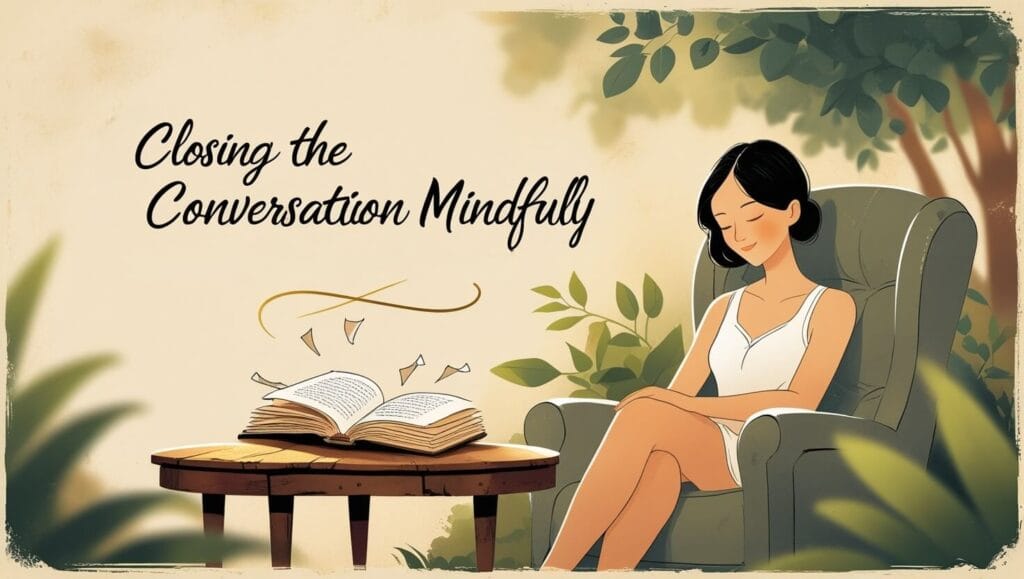
“Thank you for this conversation. I’ve learned/understood [specific insight].” How we end communications is just as important as how we begin them, yet conversation closings often receive less attention in our efforts to improve your communication skills. A thoughtful closing serves multiple purposes:
- it affirms the value of the exchange,
- acknowledges the other person’s contribution,
- and creates a positive foundation for future interactions.
I became aware of this when I noticed how abruptly I often ended phone calls or meetings, leaving conversations feeling unfinished or undervalued. By developing the habit of summarizing a key takeaway and expressing appreciation for the exchange, I found that my professional and personal conversations concluded with greater satisfaction on both sides. This simple adjustment created a sense of completion and mutual respect that was previously missing.
Effective closing phrases include elements of both gratitude and specificity. Rather than a generic “thanks for chatting,” try “I appreciate you taking the time to explain the project requirements so clearly. It’s given me a much better understanding of our priorities.” This approach acknowledges both the content of the conversation and the other person’s contribution to your understanding. As you work to improve your communication skills, pay attention to how you conclude interactions. A mindful closing leaves a lasting positive impression and reinforces the value of your exchange—creating a stronger foundation for all future communications with that person.
Improve Your Communication Skills
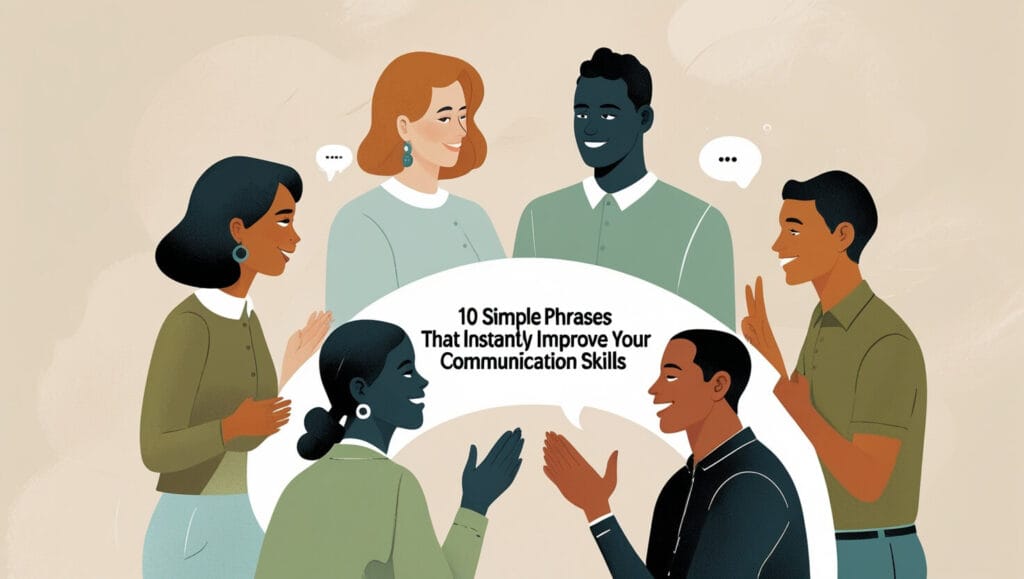
Communication is both an art and a science—a delicate balance of technical skill and emotional intelligence that we continue refining throughout our lives. The ten phrases we’ve explored offer practical, immediate ways to improve your communication skills across all types of relationships. From the power of “I” statements to the practice of mindful conversation closings, each technique addresses a fundamental aspect of effective human connection.
What makes these approaches so powerful is their accessibility. You don’t need special training or equipment to implement them—just awareness and practice. Start by choosing one or two phrases that resonate most strongly with your current communication challenges. Integrate them consciously into your conversations over the next week, noting how they influence your interactions. As these new patterns become natural, add additional techniques to your repertoire.
Remember that improving your communication skills is not about achieving perfection but about creating more meaningful connections. There will still be misunderstandings and difficult conversations—that’s part of being human. The difference lies in how equipped you feel to navigate these challenges with clarity, empathy, and respect. Each time you choose a thoughtful phrase over a reactive response, you strengthen not only that specific interaction but also your overall communication abilities.
I’d love to hear which of these phrases resonates most strongly with you or what other communication techniques have transformed your relationships. Communication is deeply personal, and sharing our experiences helps us all grow. Here’s to more authentic, effective conversations in all areas of our lives!

